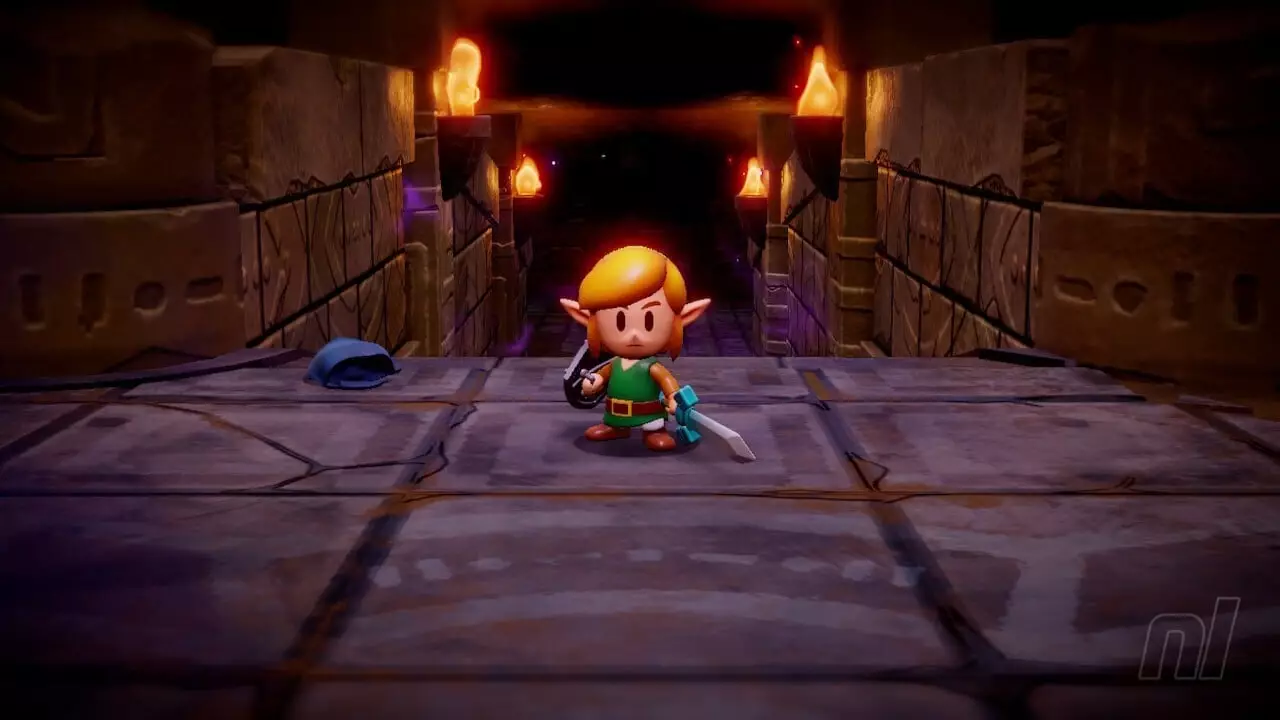The Legend of Zelda series has continually captivated audiences with its intricate narratives, engaging gameplay, and mythical lore. With the release of “Echoes of Wisdom,” fans are presented with a unique take on two beloved characters: Link and Zelda. This latest entry not only highlights Zelda as a playable character but also provides intriguing insights into Link’s silence. While Link has historically been mute in many of his adventures, the rationale behind his lack of speech in this installment is a first for the franchise.
The Evolution of Characterization in Zelda
Previously, Link has been portrayed as the silent hero—a character that players could project their own thoughts and feelings onto—making his chomping or grunting sounds feel natural for his role as the vessel of the player’s agency. However, “Echoes of Wisdom” shifts this dynamic slightly as Link’s condition evolves from mere silence to a well-defined narrative element. Here, players are confronted not just with their typical mute protagonist but are introduced to a backstory that provides context for his lack of dialogue. This narrative structure enriches the character of Link, propelling him beyond simply being a silent hero to a person with a defined struggle—a loss that aligns seamlessly with the game’s thematic explorations of rifts and their repercussions.
Upon delving into the storyline, players encounter a diary belonging to the inventor Lueberry, which discloses a critical piece of information: Link has lost his voice as a result of being trapped in rifts. This revelation not only serves as an explanation for his muteness but also cleverly ties his personal plight to the game’s overarching theme of loss and identity amongst those affected by these rifts. Much like other characters who have escaped and are dealing with their own challenges, Link’s muteness is a poignant element reflecting a deeper narrative about the effects of trauma and loss. Players learn that it’s not simply a game mechanic—it’s a symbol of the emotional and physical repercussions of the conflict in Hyrule.
Throughout the series, while Link might have exhibited a range of emotions, he has often done so without verbal expression. “Echoes of Wisdom,” however, provides a refreshing vantage point. In essence, by integrating a reason for Link’s silence that aligns with both narrative and gameplay, the developers, Nintendo and Grezzo, have elevated the storytelling aspect of the game. This not only enriches the lore of the Legend of Zelda universe but allows for more profound player engagement as they navigate the complexities of the world.
Thematic Resonance with Players
What becomes exceptionally intriguing is how Link’s inability to communicate through spoken words fosters an emotional landscape that players can explore. The layers of storytelling told through this silent protagonist’s interaction with those from whom he has rescued himself echo a broader commentary on the impacts of loss—something that resonates deeply with players. While Link doesn’t engage using dialogue, he still conveys a strong range of emotions through body language and actions, making his struggles feel visible even in silence. This allows players to manipulate their emotions and immerse themselves further into the narrative landscape of Hyrule.
A New Take on a Classic Character
In the grand scope of the Legend of Zelda, Link is no longer just a hero on a quest; he becomes a character burdened with loss and longing for recuperation. This new take on Link’s identity invites players to reconsider their connection to his character. Would Link’s journey feel different if he could articulate his challenges and ventures? Perhaps, but the decision to keep him mute while providing a backstory for that choice renders the experience both refreshing and tantalizing.
Ultimately, “Echoes of Wisdom” delivers a layered narrative that not only aligns with the traditional elements of Zelda’s gameplay but also expands on character depth that has seldom been explored. This intriguing twist invites players to forge a deeper understanding of Link and engage with his journey on a more emotional level—even in silence. A bold step in storytelling, and while it may not be the conventional approach fans expect, it creates an opportunity for reflection on the nuances of voice, loss, and growth in the enchanting world of Hyrule.


Leave a Reply